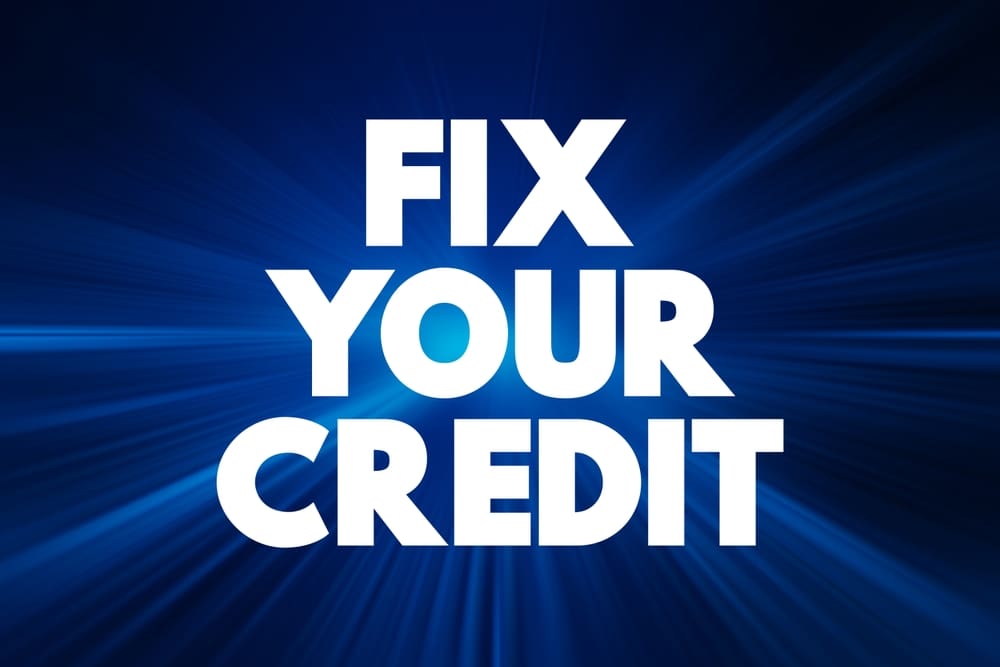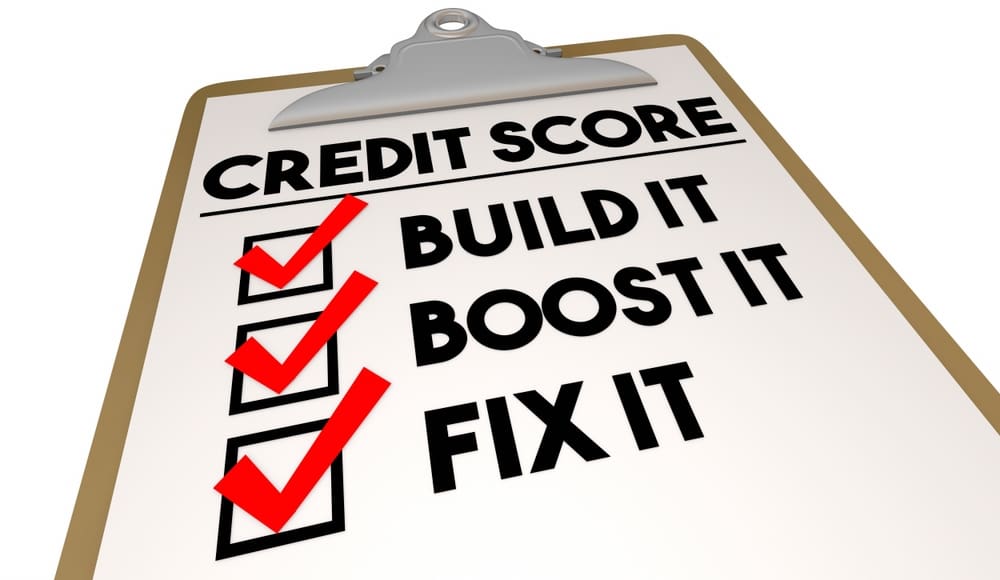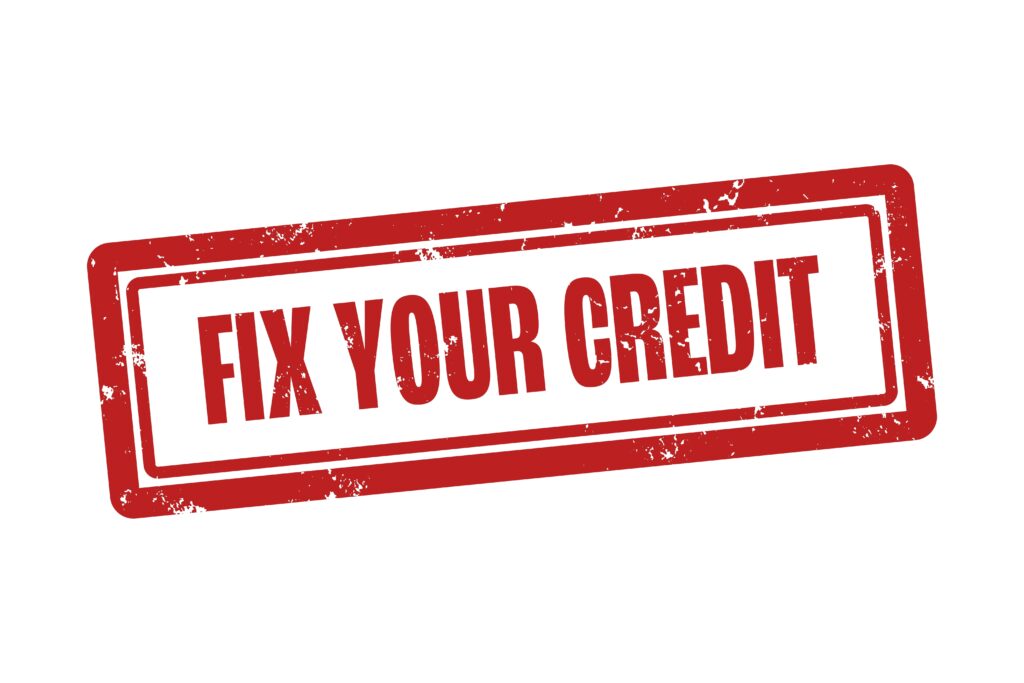Credit Repair Myths Debunked: Best Practices for Separating Fact from Fiction. Find Out More In Our Latest Article!
THIS ARTICLE MAY CONTAIN AFFILIATE LINKS, MEANING I GET A COMMISSION IF YOU DECIDE TO MAKE A PURCHASE THROUGH MY LINKS AT NO COST TO YOU. PLEASE READ MY AFFILIATE DISCLOSURE FOR MORE INFO.
Don’t Have Time To Read The Full Article. Here’s What You Are Missing.
- Credit Repair Myths Debunked: Best Practices for Separating Fact from Fiction. Find Out More In Our Latest Article!
- Understanding Credit Repair
- What is Credit Repair?
- How Does Credit Repair Work?
- Common Credit Repair Myths
- Myth 1: Credit Repair Companies Can Remove Any Negative Information
- Myth 2: Paying Off Debt Will Instantly Improve Your Credit Score
- Myth 3: You Need a Credit Repair Company to Fix Your Credit
- Truth Behind the Myths
- Fact 1: Only Inaccurate Information Can Be Removed
- Fact 2: Improvement Takes Time
- Fact 3: You Can Repair Your Credit Yourself
- Best Practices for Credit Repair
- Review Your Credit Reports
- Dispute Inaccurate Information
- Pay Your Bills on Time
- Reduce Your Debt
- Preventing Credit Damage
- Avoid New Debt
- Don’t Close Old Accounts
- Limit Hard Inquiries
- Monitor Your Credit Reports
- Understanding Credit Scores
- Importance of Financial Literacy
- Knowing Your Rights
- Debunking Myths
- Frequently Asked Questions
Understanding Credit Repair
Credit repair is a topic that many people find confusing and intimidating. There are countless myths and misconceptions surrounding credit repair, which can make it difficult to know what steps to take to improve your credit score.
In this blog post, I will be debunking some of the most common credit repair myths and separating fact from fiction. By the end of this post, you’ll have a better understanding of what credit repair is, how it works, and what steps you can take to improve your credit score.
Understanding credit repair is crucial for anyone who wants to improve their credit score. Many people believe that credit repair is a complex and time-consuming process that requires the help of a professional.
However, this couldn’t be further from the truth.

Credit repair is simply the process of identifying errors and inaccuracies on your credit report and taking steps to correct them.
In this article, I’ll be sharing some best recommended practices for credit maintenance that you can use to improve your credit score over time with education and take control of your financial future.
What is Credit Repair?
As you may already know, credit repair is the process of fixing errors, inaccuracies, and other negative information that may be present on your credit report. In this section, I will provide you with a brief overview of credit repair and explain how it works.
Credit repair is a legal process that involves the removal of negative information from your credit report. This information can include late payments, charge-offs, collections, bankruptcies, and other negative items that may be hurting your credit score. The goal of credit repair is to improve your credit score, which in turn can help you get approved for loans, credit cards, and other financial products.
How Does Credit Repair Work?
Credit repair companies work by reviewing your credit report and identifying any errors or inaccuracies that may be present. Once these errors are identified, they will work with the credit bureaus to have them removed from your credit report. This process can take anywhere from a few weeks to several months, depending on the complexity of the case.
It is important to note that credit repair is not a magic solution that will instantly improve your credit score. Rather, it is a process that requires time, patience, and diligence.
In addition to working with a credit repair company, there are several things that you can do on your own to improve your credit score, such as paying your bills on time, keeping your credit card balances low, and monitoring your credit report regularly.
Overall, credit repair can be a valuable tool for those who are looking to improve their credit score and take control of their financial future. By understanding the basics of credit repair and working with a reputable credit repair company, you can take the first step towards achieving your financial goals.
Common Credit Repair Myths

As with any industry, credit repair has its fair share of myths and misconceptions. These myths can lead to confusion and frustration for those looking to improve their credit score. In this section, I will debunk some of the most common credit repair myths.
Myth 1: Credit Repair Companies Can Remove Any Negative Information
Many credit repair companies claim to have the ability to remove any negative information from your credit report. However, this is simply not true. According to the Federal Trade Commission (FTC), it is illegal for credit repair companies to make false claims about what they can do to improve your credit score.
In reality, credit repair companies can only dispute inaccurate or incomplete information on your credit report. If the negative information on your credit report is accurate, it cannot be removed by a credit repair company.
Myth 2: Paying Off Debt Will Instantly Improve Your Credit Score
While paying off debt is an important step in improving your credit score, it will not instantly improve your score. Your credit score is based on a variety of factors, including your payment history, credit utilization, length of credit history, and types of credit accounts.
Paying off debt will help improve your credit utilization, which is the amount of credit you are using compared to your credit limit. However, it may take some time for this improvement to reflect on your credit score.
Myth 3: You Need a Credit Repair Company to Fix Your Credit
While credit repair companies can be helpful in disputing inaccurate information on your credit report, you do not necessarily need one to fix your credit. You can dispute inaccurate information on your credit report yourself by contacting the credit bureau and providing evidence to support your claim.
Additionally, there are many resources available online that can help you improve your credit score, such as credit counseling services and another important step to take is with powerful budgeting tools for managing personal finances, offering flexibility and control over every dollar. How to Use Excel for Budgeting: A Comprehensive Guide for Personal Finance.
By debunking these common credit repair myths, you can better understand the credit repair process and take the necessary steps to improve your credit score.
Truth Behind the Myths
As we have seen, credit repair myths are rampant and can be confusing. However, understanding the truth behind these myths can help you make informed decisions about your credit. Here are some of the most common myths and the truth behind them:
Fact 1: Only Inaccurate Information Can Be Removed
One of the most common misconceptions about credit repair is that you can remove accurate negative information from your credit report.
While it is true that inaccurate information can be removed, accurate negative information cannot. This includes late payments, charge-offs, and collections. However, that does not mean that you cannot improve your credit score.
By making on-time payments and reducing your credit utilization, you can show lenders that you are a responsible borrower. Over time, this can help improve your credit score.
Fact 2: Improvement Takes Time
Another common myth is that credit repair is a quick fix. In reality, improving your credit score takes time and patience. There is no overnight solution to repairing your credit.
It is important to remember that negative information stays on your credit report for seven years.
However, the impact of negative information on your credit score decreases over time. By consistently making on-time payments and reducing your credit utilization, you can start to see improvement in your credit score over time.
Fact 3: You Can Repair Your Credit Yourself
Many people believe that they need to hire a credit repair company to fix their credit. While credit repair companies can be helpful, they are not necessary. In fact, you can repair your credit yourself.
To start, you can request a free copy of your credit report from each of the three major credit bureaus.
Once you have your credit report, you can review it for errors or inaccuracies. If you find any errors, you can dispute them with the credit bureau.
In addition, you can work on building positive credit history by making on-time payments and reducing your credit utilization. By taking these steps, you can start to improve your credit score on your own.
Overall, understanding the truth behind credit repair myths can help you make informed decisions about your credit. While credit repair is not a quick fix, it is possible to improve your credit score over time.
By focusing on building positive credit history and making responsible financial decisions, you can achieve your credit goals.
Best Practices for Credit Repair

If you’re looking to repair your credit, there are a few best practices you should follow to ensure that you’re doing everything you can to improve your credit score. Here are some key steps you should take:
Review Your Credit Reports
The first step in repairing your credit is to review your credit reports from the three major credit bureaus (Experian, Equifax, and TransUnion).
You can get a free copy of your credit reports more than once a year from each of these bureaus through AnnualCreditReport.com.
Review your reports carefully to make sure that all of the information is accurate and up-to-date. If you find any errors or inaccuracies, you should dispute them with the credit bureau.
Dispute Inaccurate Information
If you find any errors or inaccuracies on your credit reports, you should dispute them with the credit bureau. This can be done online, by mail, or by phone. The credit bureau will investigate your dispute and either remove the inaccurate information or update it with the correct information.
Pay Your Bills on Time
One of the most important factors in your credit score is your payment history. To improve your credit score, you should make sure that you pay all of your bills on time.
This includes credit card payments, loan payments, and utility bills. If you’re having trouble making your payments, you should contact your creditors to see if you can work out a payment plan.
Reduce Your Debt
Another important factor in your credit score is your credit utilization ratio. This is the amount of credit you’re using compared to the amount of credit you have available.
To improve your credit score, you should try to keep your credit utilization ratio below 30%. If you have a lot of debt, you should focus on paying off your highest interest debts first.
By following these best practices for credit repair, you can take control of your credit score and improve your financial future.
Preventing Credit Damage
As the saying goes, prevention is better than cure. When it comes to credit repair, preventing further damage is key. Here are some best practices to help you prevent credit damage:
Avoid New Debt
Taking on new debt can be tempting, especially if you’re in a tight spot financially. However, taking on new debt can hurt your credit score.
Every time you apply for a new credit card or loan, a hard inquiry is made on your credit report. These inquiries can lower your credit score by a few points, and too many inquiries can make you appear risky to lenders.
Don’t Close Old Accounts
Closing old credit accounts may seem like a good idea, especially if you’re no longer using them. However, closing old accounts can actually harm your credit score.
The length of your credit history is a factor in your credit score, and closing old accounts can shorten your credit history. Additionally, closing accounts can increase your credit utilization ratio, which can also lower your credit score.
Limit Hard Inquiries
As mentioned earlier, hard inquiries can lower your credit score. Limiting hard inquiries is a good way to prevent credit damage. One way to limit hard inquiries is to only apply for credit when you need it.
Additionally, you can check with potential lenders to see if they perform a soft inquiry instead of a hard inquiry. Soft inquiries do not affect your credit score.
By following these best practices, you can prevent further damage to your credit score. Remember, credit repair is a process, and it takes time and effort to see results.
Monitor Your Credit Reports
Monitoring your credit reports is essential for several reasons:
- Identify Errors: Regularly checking your credit reports can help you spot inaccuracies or errors that could negatively affect your credit score. Mistakes can arise from clerical errors, outdated information, or identity theft.
- Prevent Identity Theft: Keeping an eye on your credit reports can alert you to any unauthorized accounts or inquiries, helping you catch identity theft early and take action to mitigate its effects.
- Understand Your Credit Score: By monitoring your credit reports, you can gain insights into the factors affecting your credit score. This understanding can help you make informed decisions to improve your creditworthiness.
- Track Your Financial Progress: Regularly reviewing your credit reports allows you to see how your financial habits impact your credit over time. This can motivate you to maintain good credit practices.
- Prepare for Major Purchases: If you’re planning to apply for a mortgage, car loan, or other significant credit, monitoring your credit reports can help you ensure that your credit profile is in good shape before you apply.
- Stay Aware of Changes: Credit reports can change over time due to new accounts, changes in payment history, or credit inquiries. Monitoring helps you stay informed about your financial status.
- Access to Credit Score: Many credit monitoring services provide access to your credit score, allowing you to see how your actions impact your creditworthiness.
By actively monitoring your credit reports, you can take control of your financial health and make informed decisions about your credit.
Understanding Credit Scores

As someone who has gone through the process of repairing my credit, I cannot stress enough the importance of financial literacy.
Understanding how credit scores work and knowing your rights as a consumer are crucial steps in taking control of your financial future.
In this section, I will discuss the importance of financial literacy and provide some best practices for becoming more financially motivated.
Importance of Financial Literacy
One of the most important aspects of financial literacy is understanding credit scores. Your credit score is a numerical representation of your creditworthiness, and it plays a significant role in your financial life.
A good credit score can help you get approved for loans, credit cards, and even rental applications. On the other hand, a poor credit score can make it difficult to get approved for these things, or result in higher interest rates and fees.
There are many myths surrounding credit scores, such as the idea that checking your credit score will lower it.
However, the truth is that checking your own credit score will not impact it. It’s important to know what factors impact your credit score, such as payment history, credit utilization, and length of credit history. By understanding these factors, you can take steps to improve your credit score over time.
Knowing Your Rights
Another important aspect of financial literacy is knowing your rights as a consumer. The Fair Credit Reporting Act (FCRA) and the Fair Debt Collection Practices Act (FDCPA) are two laws that protect consumers when it comes to credit reporting and debt collection.
These laws outline your rights when it comes to disputing errors on your credit report, dealing with debt collectors, and more.
It’s important to know your rights under these laws so that you can protect yourself from unfair or illegal practices. For example, debt collectors are not allowed to harass you or threaten you with legal action, and they must provide you with certain information about your debt. By knowing your rights, you can take action if you feel that your rights have been violated.
Financial literacy is an essential part of taking control of your financial future. By understanding credit scores and knowing your rights as a consumer, you can make informed decisions about your finances and take steps to improve your credit.
Remember, financial literacy is an ongoing process, so make a commitment to continue learning and growing in this area.
Debunking Myths
It is essential to debunk the myths surrounding credit repair to help individuals make informed decisions. Through this blog post, I have highlighted some of the most common myths and provided factual information to separate fact from fiction.
Remember that repairing your credit score takes time and effort, and there are no quick fixes.
It is crucial to review your credit reports regularly to identify any errors or inaccuracies that could be affecting your score. You can obtain a free copy of your credit report from each of the three credit bureaus once a year. Reviewing your credit report can help you identify areas that need improvement and create a plan to achieve your financial goals.
When it comes to repairing your credit score, there are no shortcuts or magic solutions. The best practices for credit repair include paying your bills on time, reducing your debt, and disputing any errors on your credit report.
By following these practices, you can improve your credit score and achieve financial stability.
Remember, there is no need to pay for credit repair services or use credit repair companies. You can do it yourself with a little bit of effort and patience.
Don’t fall prey to the myths and misconceptions surrounding credit repair. Instead, educate yourself and take control of your financial future. Conquering Debt: How I Crushed $42,000 in 6 Months (and You Can Too!).
Frequently Asked Questions
What are some common myths about credit repair?
There are several common myths surrounding credit repair. One of the most pervasive is that credit repair companies can magically erase negative items from your credit report.
However, this is simply not true. While credit repair companies can help you dispute inaccurate information on your credit report, they cannot remove legitimate negative items.
Another myth is that you can improve your credit score overnight. In reality, improving your credit score takes time and effort.
What are the consequences of believing in credit repair myths?
Believing in credit repair myths can have serious consequences. For example, if you believe that credit repair companies can erase negative items from your credit report, you may be taken advantage of by unscrupulous companies that charge exorbitant fees for services that they cannot deliver.
Additionally, if you believe that you can improve your credit score overnight, you may be tempted to engage in risky financial behaviors that can actually hurt your credit score in the long run.
How can identifying credit repair myths help improve your credit score?
Identifying credit repair myths is an important step in improving your credit score. By understanding what is and is not possible when it comes to credit repair, you can avoid scams and focus on the actions that will actually help you improve your credit score.
For example, instead of paying a credit repair company to dispute inaccurate information on your credit report, you can do it yourself for free.
What are some best practices for repairing your credit?
There are several best practices for repairing your credit. First, make sure that you are paying all of your bills on time. Late payments can have a significant negative impact on your credit score.
Second, pay down your credit card balances. High credit card balances can also hurt your credit score. Third, check your credit report regularly to make sure that all of the information on it is accurate.
If you find errors, dispute them with the credit reporting agencies.
How can you differentiate between credit repair fact and fiction?
Differentiating between credit repair fact and fiction can be challenging, but there are a few things that you can do to make it easier.
First, be wary of any company that promises to erase negative items from your credit report.
This is simply not possible.
Second, do your own research and verify any claims that you come across. Finally, if something sounds too good to be true, it probably is.
What are some common mistakes people make when trying to repair their credit?
One common mistake that people make when trying to repair their credit is paying for credit repair services.
As mentioned earlier, credit repair companies cannot do anything that you cannot do yourself for free. Another mistake is closing credit card accounts.
While it may seem counterintuitive, closing a credit card account can actually hurt your credit score by increasing your credit utilization ratio.
Finally, people often make the mistake of applying for too much credit at once. Each time you apply for credit, it can have a negative impact on your credit score.
Disclaimer: Millennial Credit Advisers is not a licensed credit service provider or financial advisor. We don’t offer credit repair, debt management, or legal services. Educate yourself on saving, reducing debt, and managing credit for economic improvement. Understand credit reports, scores, and financial products. Consult a financial advisor for personalized advice. Track your progress for a better credit journey.
Written content – “Please view our full AI Use Disclosure.”
We improve our products and advertising by using Microsoft Clarity to see how you use our website. By using our site, you agree that we and Microsoft can collect and use this data. Our privacy policy has more details.
















